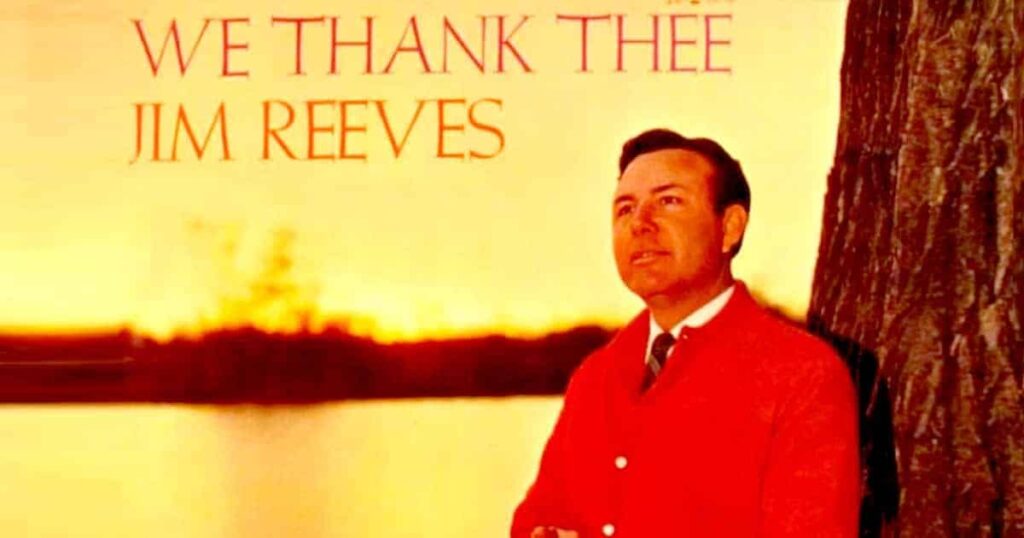
Gentleman Jim’s Hymn of Humble Gratitude
For those of us who remember a gentler era in country music—a time when the Nashville sound was as smooth as aged whiskey and as comforting as a warm hearth—the voice of Jim Reeves holds a singular, sacred place. Known affectionately as “Gentleman Jim,” his rich, velvety baritone could infuse even the simplest lyric with profound feeling. His gospel record, “We Thank Thee,” is a perfect example of this enduring power, a sincere prayer set to a melody that wraps around the heart.
This wasn’t a raucous, chart-busting pop single, but a cornerstone of a beloved album. “We Thank Thee” is the title track of the gospel album of the same name, released on RCA Victor in June 1962. It was a deeply personal project for Jim Reeves, who actually wrote the song himself, demonstrating his faith and his deep connection to the natural, pastoral beauty he often sang about. The album, produced by the legendary Chet Atkins—the architect who shaped Reeves’s signature crossover sound—was a consistent seller and a fixture in many homes. Though primarily a gospel collection that didn’t aim for the pop singles charts, the album We Thank Thee did achieve considerable international success, charting in the UK and reaching a peak position of Number 17 on the UK Albums Chart in 1964, a poignant testament to Reeves’s immense global popularity even after his tragic, untimely death later that year.
The story behind the song is one of pure, unadorned thankfulness. Jim Reeves composed the lyrics as a prayer, a catalog of the quiet miracles we often overlook in our daily lives. The meaning is crystal clear: it’s a moment to pause the hurried pace of life and offer gratitude for everything from the macro (“the deep blue sea”) to the intensely personal (“the air that we breathe”). Listen closely to the words: “We thank Thee each morning for a newborn day / Where we may work the fields of new mown hay.” It’s a beautifully grounded piece, connecting spiritual devotion not with abstract theology, but with the very earth and the simple dignity of honest labor.
The recording itself, laid down on January 30, 1962, in Nashville, epitomizes the elegance of the Nashville Sound. Under Chet Atkins’s sensitive production, Reeves’s vocal is front and center—warm, flawless, and deeply reverent. He is backed by a gentle, tasteful arrangement featuring a subtle piano played by Bill Pursell, a soft vocal chorus providing a quiet, hymn-like echo, and a delicate rhythm section. There are no flashy solos or jarring interruptions; every note is measured and respectful, designed to create an atmosphere of quiet contemplation.
For those of us who grew up with Jim Reeves as a comforting presence on the record player, “We Thank Thee” is more than just a song; it’s an auditory memory of a simpler, more spiritually reflective time. It reminds us of sitting in the living room, perhaps on a Sunday afternoon, and being enveloped by that voice—that profound, gentle sound that felt like a handshake from a friend. It stands as a timeless hymn of the ordinary, urging us to remember the bounty of the fields, the joy of a singing bird, and the simple, priceless gift of another day. It is, quite simply, an eternal classic that beautifully captures the essence of faith and grace.